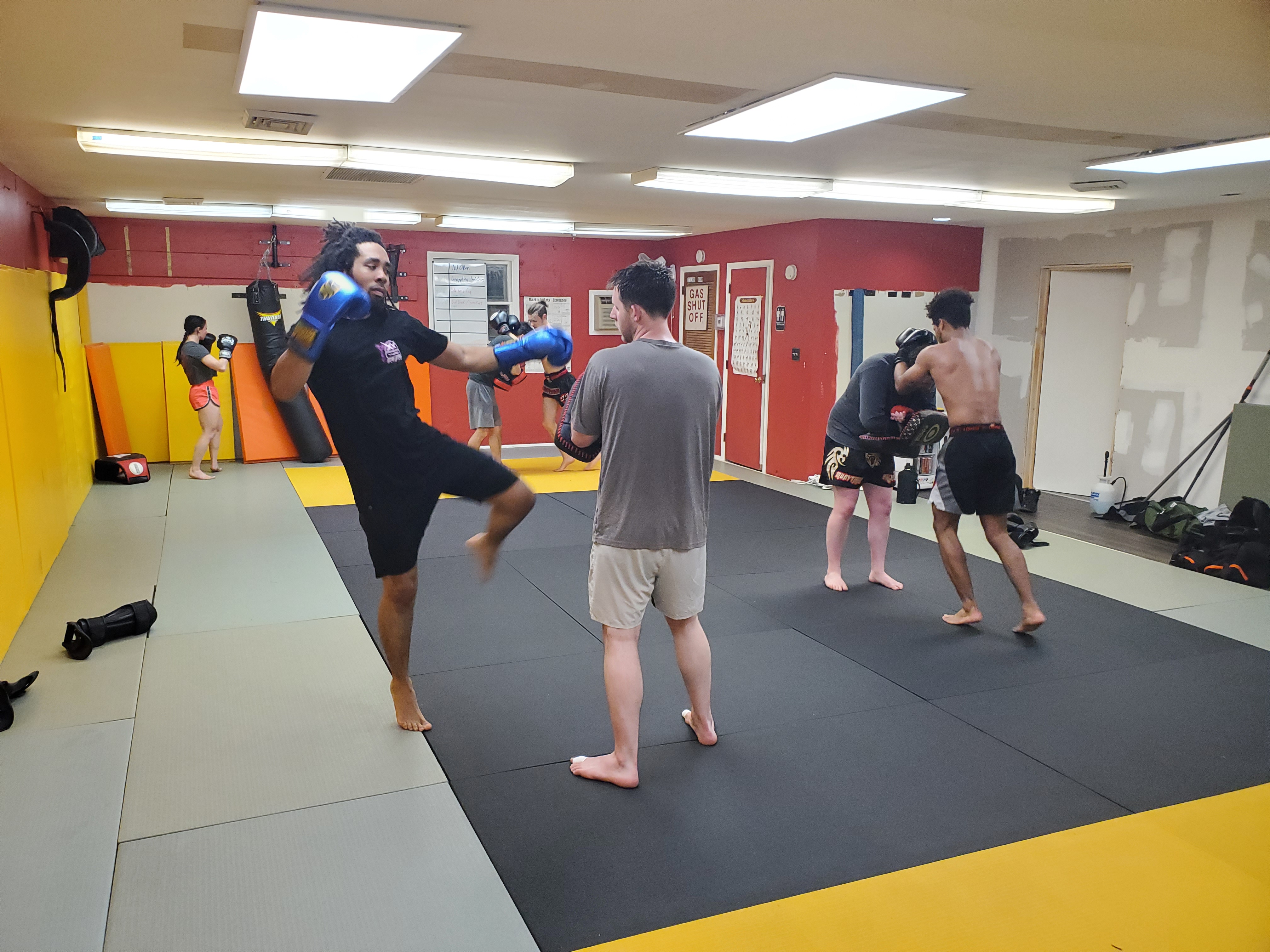
As a coach I hear it time and time again from members of all levels, "I feel good when I hit pads or drill but I get so tired when I'm sparring". If you feel you're getting inexlicably tired specifically while sparring, there are a few things we might have to take inventory of.
1. Tension and Exhaustion
When you're hitting pads you're not mentally vigilant because (generally speaking) you know your pad holder isn't going to hit you back, at least not in the way they would if you were sparring. When you're sparring you don't know when or where strikes will come from so you're constantly on high alert and possilby jumping at shadows depending on how good your opponent's feints are. This will disrupt your breathing as well as slowly drain your energy from moving. Not only that, the physical and mental tension of delivering and absorbing strikes will have your heart running at a higher rate than if you were hitting pads or drilling. That's natural. Still, try to breathe as normally as possible and remain as calm as possible. This won't happen overnight and will require constant reminders to remain relaxed, but you'll notice a huge difference in your exhaustion levels if you can remain as cool as possible. I always compare it to tension being an energy leech, the more tense you are the bigger the leech is.

2. Output
To put it quite simply, sometimes you get a pad holder that doesn't push the pace on you. That may not be their fault: they may be correcting your techniques or giving you advice, or maybe the combination is long so naturally you're going to require some time to get used to it before you feel you can blast away. All of that can potentially cut into your output which leads to less repetitions which means your heart isn't going to be working as hard. That's not necessarily a bad thing. After all, you shouldn't be going hard all the time, especially if you're learning a new combo or technique. However, sparring doesn't provide the luxury of going at a learning pace, especially if it's a hard sparring day. That could mean your output will be higher than what you're use to which leads to faster and more thorough exhaustion. If possible, have a coach or training partner keep track of how many strikes you're throwing in drilling rounds compared to sparring rounds and see if there's a big difference.
Solutions:
I hate to be the type of person who says "just do more" but quite frankly just do more! Have a "good gas tank" isn't only about being in good physical shape it's also and indicator of your skill level relative to your opponent. If you can be more efficient than your opponent you're also going to feel like you have cardio even though your opponent might be in better physical shape than you. My recommentation first and foremost is to become a better fighter. That might mean putting in extra work sharpening your techniques and working on defense. You should definitely ask your coach what your deficiencies are and work on them on your own time. Another solution is to do more rounds. I always tell my students to go until they feel like they're going to die, then do one more round. You won't improve your cardio for fighting if you stay in your comfort zone, much like you won't get stronger in the weight room if you don't lift progressively heavier objects. It might suck, and it might feel like hell, but our sport being what it is unfortunatly the only way to get in "better fight shape" is to push through the exhaustion. Have a set number of rounds in mind and let your training partners know not to let you rest before you hit that number.
Shark tanks are another great way to get in shape. This is simply bringing in a new, fresh opponent at predetermined intervals. For example if you're getting ready for a kickboxing fight, have a new opponent come in every minute. This is both physically and mentally exhausting as you know the next person coming in will have been fully rested. Don't let that discourage you, put your head down and do the work
Conclusion:
Fighting of any kind is a very difficult thing to prepare for. By nature, fighting is incrdibly dynamic and is highly depending on your body type and skillset compared with your opponent's body type and skill set. You can run all the hills you want or lift every weight in existence but at at the end of the day the best way to get better at your craft is to actually practice your craft. If your goal is to get in better fight shape then 90% of your training should reflect what you're going to do in the ring or cage.

